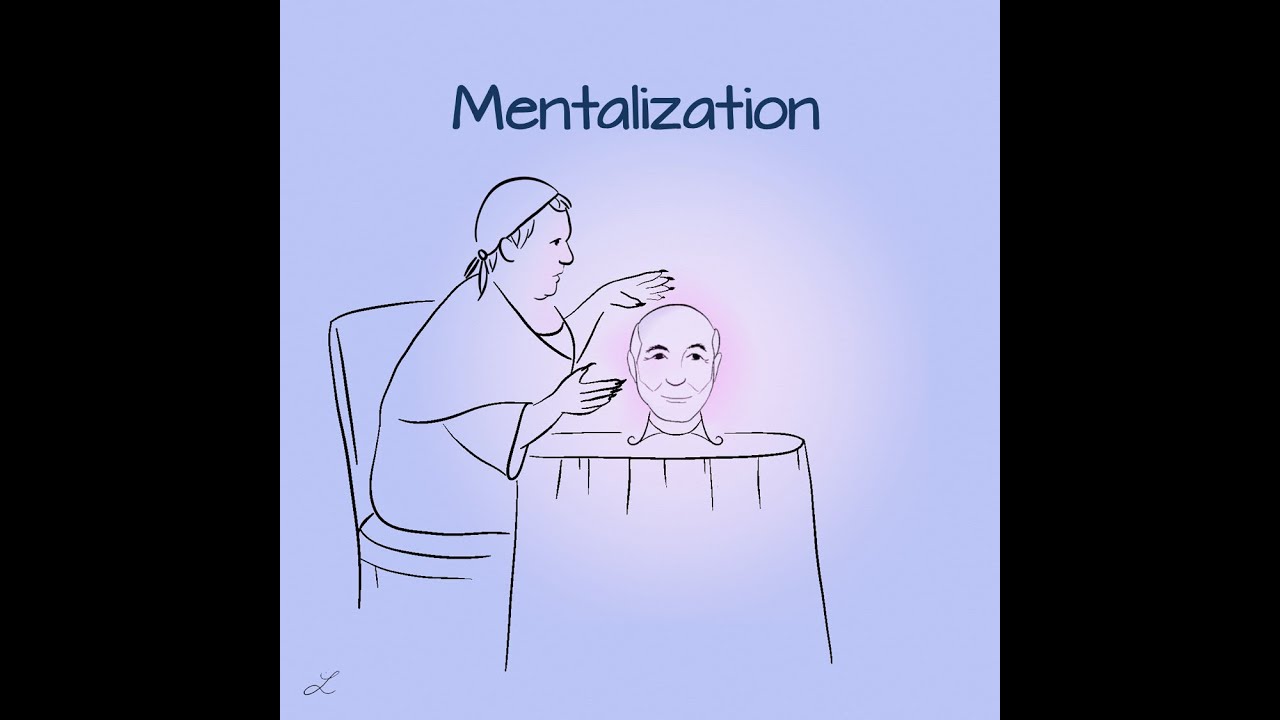Episode 6: Mentalization. Or: “I am what I think you think I am.”
Description: Mentalization
Everyone has probably wondered to themselves: “Why did I just do that?” or even, “Why did my partner actually behave like that?” The ability to relate and interpret one’s own actions and behavior, and that of another person, to mental states is called the ability to mentalize. In some people it is well developed, while in others it is rather fragile, as is often the case, for example, with so-called “borderline personality disorders”. This episode deals with how we develop the ability to mentalize and what the consequences are when we fail to mentalize.
——————–
This podcast is a labor of love and pursues neither commercial nor institutional interests. Our goal is to make knowledge about mental illness, psychotherapy, and psychoanalysis freely accessible to all.
If you want to help us to create more content there are two possibilities to support us:
► Become a member on **Patreon**. As a thank you, you will receive the scripts to each episode: https://www.patreon.com/join/lives
► Make a donation via **Paypal**: https://www.patreon.com/join/lives
——————–
► Subscribe: https://tinyurl.com/47fxz38c
► Website: https://psy-cast.org/en/
► Facebook @UnconsciousLives: https://www.facebook.com/UnconsciousLives
► Twitter @LiveUnconscious: https://twitter.com/LiveUnconscious
► Instagram: https://www.instagram.com/lives_of_the_unconscious/
——————–
Literature Recommendations:
— Allen, J. G. & Fonagy, Peter (2007). Handbook of Mentalization-Based Treatment. John Wiley & Sons, Ltd, Sussex.
— Berger, S., Jurist, E., Slade A. (2008): Mind to Mind: Infant Research, Neu-roscience, and Psychoanalysis: Mentalization, Internalization, and Representation. Other Press.
— Charles Cooley (1927). Life and the Student: Roadside Notes on Human Nature, Society, and Letters.
— Fonagy, P., Target, M. (1997). Attachment and reflective function: their role in self-organization. Development and Psychopathology, 9, 679–700. Cambridge University Press. (https://www.researchgate.net/publication/13781713_Attachment_and_reflective_function_Their_role_in_self-organization)
— Fonagy, P., Gergely, G., Jurist, E.L., Target, M. (2002). Affect regulation, mentalization and the development of the self. New York: Other Press.
— Fonagy, P., Target, M. (2006). The Mentalization-Focused Approach to self pathology. Journal of Personality Disorders, 20(6), 544–576 (https://www.researchgate.net/publication/6608760_The_Mentalization-Focused_Approach_to_Self_Pathology)
— Fonagy, P., Allison, E. (2011). What is Mentalization? The Concept and its Foundations in Developmental Research and Social-Cognitive Neurosci-ence. (https://discovery.ucl.ac.uk/id/eprint/1430329/7/Fonagy_chapter1_draft_pfrevised_protected.pdf)
— Fonagy, P; Allison, P (2014). The role of mentalizing and epistemic trust in the therapeutic relationship. Psychotherapy. 51 (3): 372–380.
— Fonagy, P; Luyten, P (2018). Attachment, mentalization, and the self. Chapter 7. In: Livesley, WJ and Larstone, R, (eds.) Handbook of person-ality disorders. Guilford Press: New York, NY, USA. (https://discovery.ucl.ac.uk/id/eprint/1535395/1/Fonagy%20Luyten_with%20figures.pdf)
——————–
Speakers: Rebecca Dyson-Smith & Soliman
LawrenceTranslation: Soliman Lawrence
Written and produced by Dr. Cécile Loetz & Dr. Jakob Johann Müller
Contact: lives@psy-cast.org
#Psychoanalysis #Mentalization #Psychotherapy













